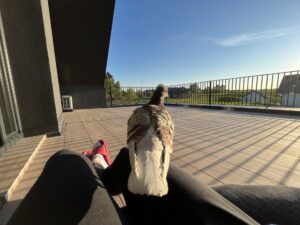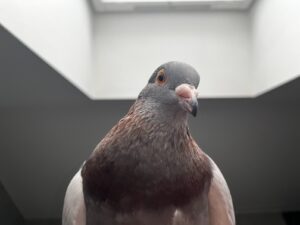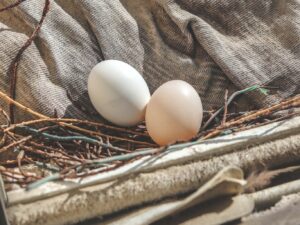When we think of pigeons, city parks and urban landscapes may come to mind. However, beyond their common public persona, these birds have been gaining recognition as beloved pets and hobby animals. Their intelligence, diversity, and fascinating history make them an appealing choice for pet enthusiasts. Yet, owning a pigeon entails more than just companionship; it involves a financial commitment that can vary considerably based on numerous factors.
This article delves into the costs associated with owning a pigeon, providing potential owners and the curious reader alike with a comprehensive understanding of what it truly costs to keep these charming creatures.
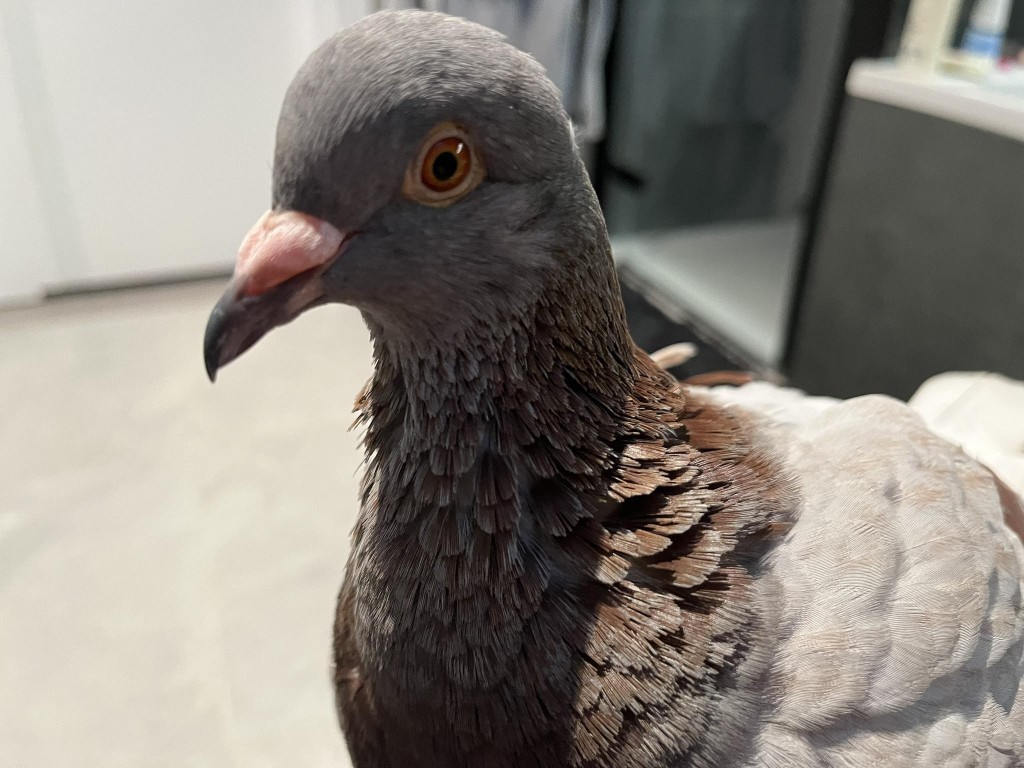
How much do pigeons cost?
A Closer Look at Pigeons
Pigeons have a rich history that spans thousands of years, having been domesticated as early as 4500 BCE. These birds have served as messengers during wars, symbols of peace, and even as a source of food in some cultures. Today, they have found a place in many homes as pets.
There’s a wide variety of pigeon breeds, each with unique characteristics. From the showy fantail pigeons to the speedy racing pigeons and the sturdy rock pigeons, the range is extensive, catering to different pet owner preferences.
Owning a pigeon can be a rewarding experience. They are intelligent, sociable, and relatively low-maintenance compared to other pets. However, there can be challenges, such as dealing with potential health issues, securing a safe environment from predators, and understanding their cooing language. We’ll be exploring these aspects and their impact on the overall cost of keeping pigeons.
How much do pigeons cost? Factors Influencing the Cost of Pigeons
The cost of owning a pigeon isn’t a fixed number, and numerous factors can influence it significantly. Some of the key elements affecting the price are:
Breed
Pigeons come in an impressive array of breeds, each carrying its own unique traits and price tags. For instance, common city pigeons, also known as rock doves, may cost little to nothing, especially if they are adopted. On the other hand, more exotic or purebred pigeons like the English Carrier or the Indian Fantail can fetch several hundred dollars each, due to their unique attributes and show qualities.
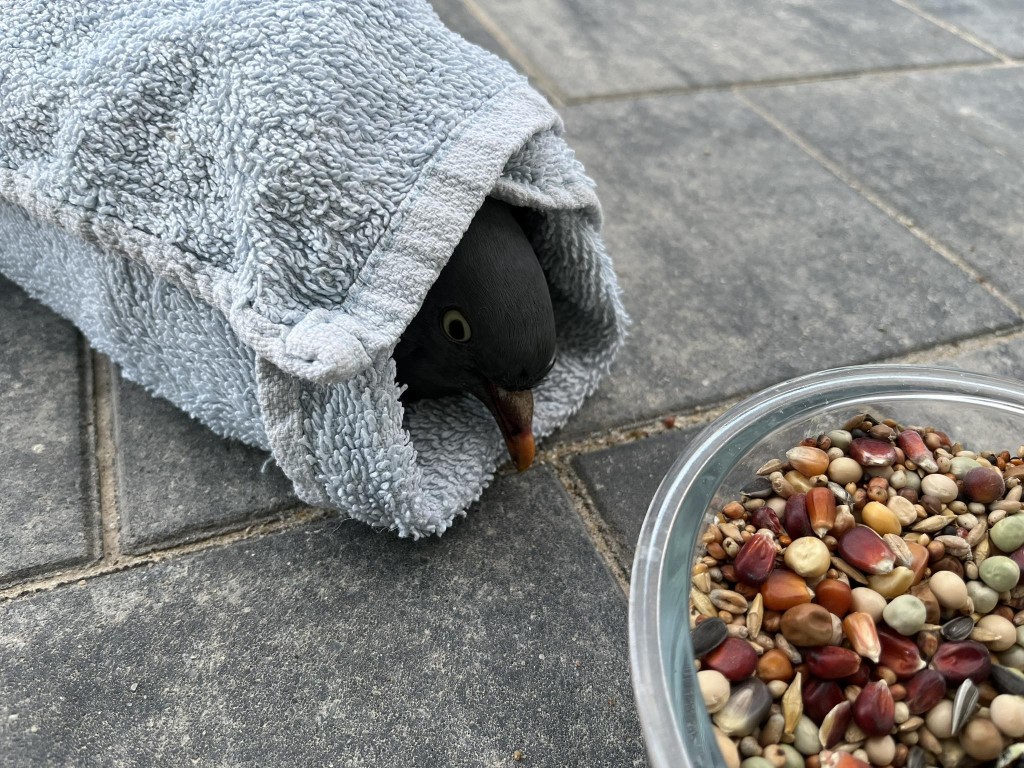
Check my article about What Do Pigeons Eat?
Age
Much like any other pet, the age of a pigeon can greatly affect its purchase price. Young pigeons, or squabs, are typically less expensive as they require more care and time to mature. On the contrary, matured pigeons, especially those that have demonstrated breeding success or racing abilities, might be priced higher.
Check my article about How Long Do Pigeons Live?
Health and genetics
A healthy pigeon with a proven pedigree or successful lineage is likely to cost more. Buyers may be willing to pay premium prices for pigeons that come from a line of winners in the racing or show world. Additionally, the overall health of the bird can affect its price – a pigeon in prime health condition is expected to have a higher value than one with health issues.
Origin and location
The price of a pigeon can vary greatly depending on where it’s purchased. In certain countries or regions, certain pigeon breeds might be more readily available and hence cheaper. Importing exotic breeds from overseas can add to the cost due to shipping fees, import duties, and additional quarantine procedures.
In the following sections, we’ll break down these costs further, giving you a better understanding of the financial commitment involved in owning these fascinating birds.
How much do pigeons cost – Cost Breakdown
To give a comprehensive view of the financial commitment involved in owning a pigeon, we need to examine not only the initial purchase price, but also the setup and ongoing maintenance costs. Let’s dive into a detailed cost breakdown to fully understand the expenses related to keeping these unique birds.
Initial cost of the bird
The initial cost of purchasing a pigeon varies greatly based on the breed. For example, common breeds like the Rock Pigeon might only cost around $10 to $20 each. Middle-range breeds such as Racing Homers or King Pigeons could set you back anywhere from $50 to $100 per bird. On the higher end, exotic or fancy breeds like the Jacobin or English Carrier can cost several hundred dollars each. Moreover, champion racing pigeons can fetch prices in the thousands due to their proven track records.
Setup cost
Once you’ve purchased your pigeon, you’ll need a proper setup to house it. This includes a cage or loft, which can range from a basic $50 setup to a more elaborate loft costing $500 or more. Nesting materials are relatively inexpensive, with costs around $10 to $20 for a decent supply. Other essentials include feeders and water dispensers, which can be around $10 to $30 each, and a bird bath, which may cost anywhere from $20 to $50.
Check my article about Do Pigeons Make Nests?
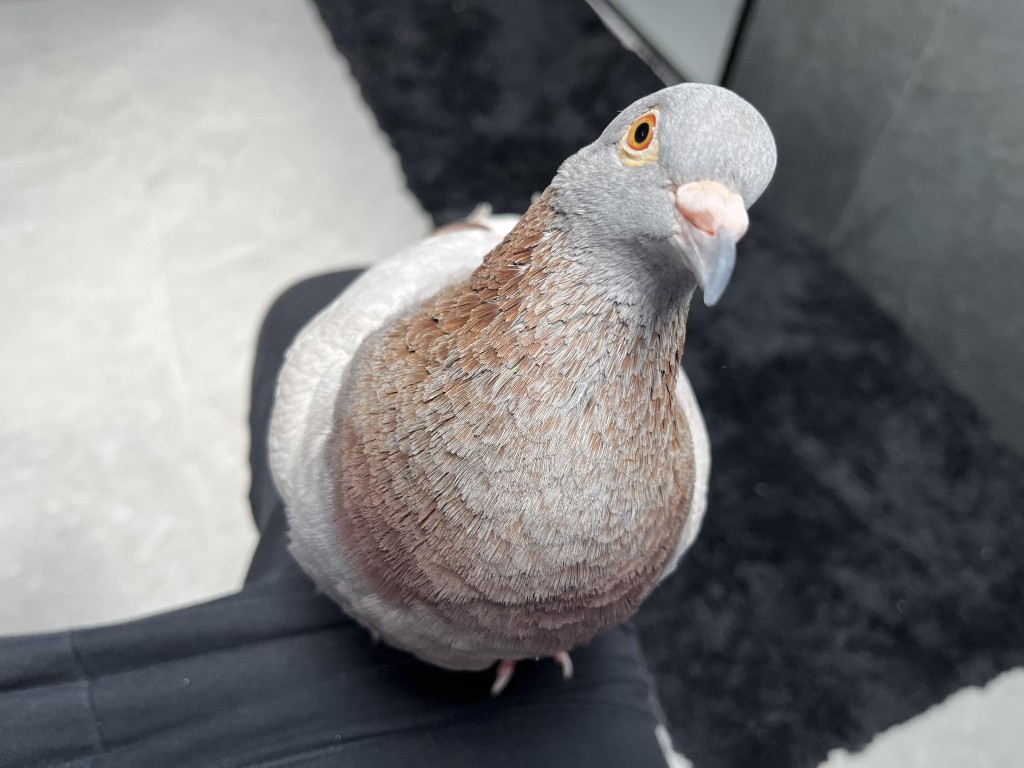
Maintenance cost
Maintenance costs encompass a variety of ongoing expenses. Food is a major one, with pigeons typically consuming a diet of seeds, grains, and occasional fruits and vegetables. This could cost around $10 to $20 per month, depending on the bird’s size and diet. Supplements such as grit or mineral blocks may add an extra $5 to $10 per month. Regular health checks, which are crucial for maintaining your pigeon’s health, might cost around $50 to $100 per visit, depending on your location and the specific veterinary services required. Other potential expenses include deworming medications, lice or mite treatments, and emergency healthcare costs.
Remember, these figures are rough estimates and the actual cost could be higher or lower depending on various factors such as your location, the specific needs of your pigeon, and the level of care you intend to provide.
Tips for Buying Pigeons
Deciding to own a pigeon is only the first step of the journey. It’s important to know how to choose the right bird and to understand what owning a pigeon involves. Here are some key tips for buying pigeons, including where to buy them, what to look for in terms of health, why choosing a well-bred bird is crucial, and some special advice for first-time owners.
Where to Buy
Deciding where to purchase your pigeon can play a key role in the bird’s health, temperament, and compatibility with you. Here are a few options:
- Pet shops: They often provide a variety of breeds and can be a convenient starting point, especially for novice owners. However, be cautious about the health and origin of the birds, as details may be vague or unavailable.
- Breeders: These specialists can offer a wide range of specific breeds, and they typically provide accurate information about the bird’s lineage and health history. Breeder-sourced birds might cost more but often assure better quality and health conditions.
- Rescues or Adoption Centers: Adopting a pigeon from a rescue center is another great option. While you might not find a wide variety of breeds here, you’d be providing a home to a pigeon in need and contributing to animal welfare.
- Online Marketplaces: Several online platforms connect pigeon sellers and buyers. While this can provide a broader selection and competitive prices, caution must be taken to verify the credibility of sellers and the health and condition of the birds.
Each of these options has its pros and cons. Ultimately, the choice depends on your specific needs, your budget, and the level of responsibility you’re ready to take on.
What to look for in a healthy pigeon
Recognizing the signs of a healthy pigeon can prevent future health complications and unnecessary expenses. A healthy pigeon will have bright, clear eyes, clean and sleek feathers, and an alert demeanor. Check for any signs of illness such as nasal discharge, lethargy, ruffled feathers, or difficulty breathing. Also, the pigeon’s environment should be clean and well-maintained.
Importance of getting a well-bred pigeon
Buying a well-bred pigeon from a reputable source increases the chances of having a bird with good health and temperament. Well-bred pigeons are likely to live longer, have fewer health issues, and may be easier to train. If you’re considering racing pigeons or show pigeons, a well-bred bird is almost a necessity due to the specific traits required.
Recommendations for first-time pigeon owners
If you’re a first-time pigeon owner, start with a breed that’s known for being low-maintenance and friendly, such as the Rock Pigeon. Make sure to do thorough research about pigeon care before making a purchase. Consider talking to current pigeon owners or joining local pigeon clubs for advice. Also, ensure you have a suitable environment for the pigeon and that you’re prepared for the commitment in terms of time and money. Remember, owning a pigeon is a long-term commitment, as these birds can live up to 15 years or more.
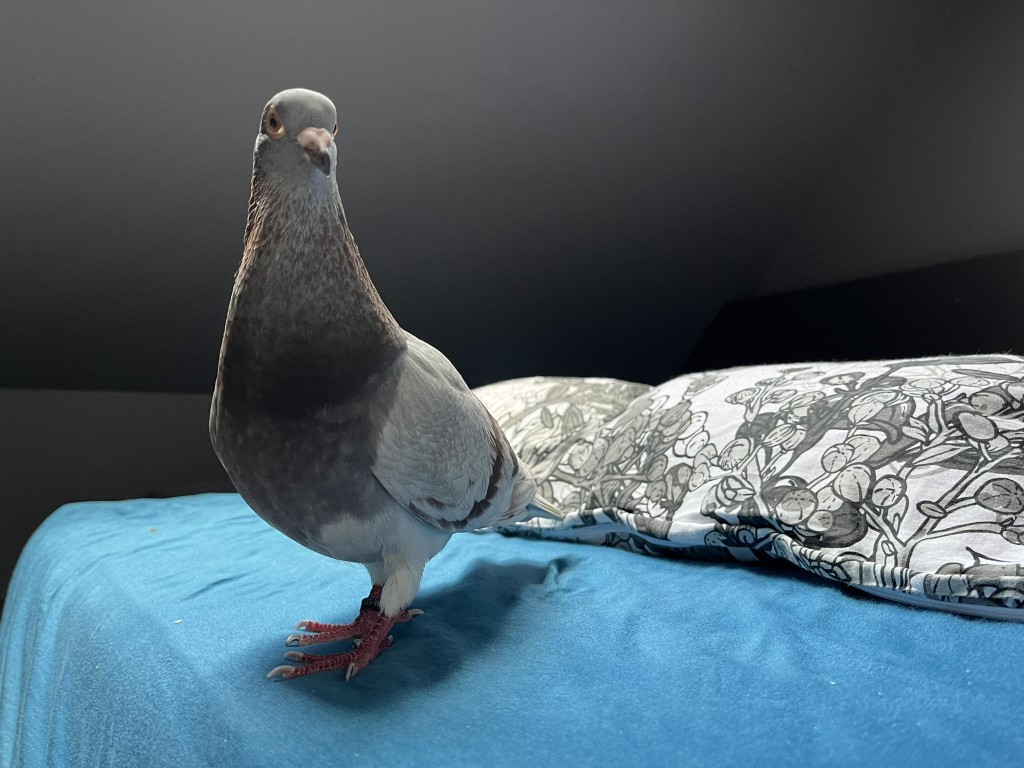
How much do pigeons cost? Final Thoughts
Owning a pigeon is a unique and rewarding experience, but it’s also a commitment that comes with its own set of costs. These costs can be influenced by various factors, including the breed of the pigeon, its age, health, and the location of purchase. In addition to the initial cost of the bird, potential owners must also consider setup costs, including housing and equipment, and ongoing maintenance costs, such as food, supplements, and healthcare.
If you’re considering owning a pigeon, thorough research and careful planning are key. Understand the responsibilities and costs that come with this decision, and ensure that you’re ready to commit to the wellbeing of your future pet. Keep in mind that owning a pigeon is a long-term commitment – these birds can live up to 15 years or more. With the right care and environment, pigeons can make wonderful pets, bringing joy and companionship to their owners’ lives.
How much does a pigeon cost?
The cost of a pigeon can vary widely based on the breed, age, health, and origin of the bird. You could find a common breed like a Rock Pigeon for around $10-$20, while more exotic or specialized breeds could cost several hundred dollars or even thousands.
Are there additional costs involved in owning a pigeon?
Yes, besides the initial cost of purchasing the pigeon, there are costs for housing, feeding, and healthcare. These can include a cage or loft, food and supplements, and regular vet checkups, among other potential expenses.
How much does a pigeon cage or loft cost?
The cost of a pigeon cage or loft can range from $50 for a basic setup to over $500 for a more elaborate and spacious one.
How much does feeding a pigeon cost per month?
The monthly food cost for a pigeon can be around $10-$20, depending on the bird’s size and specific diet.
Are certain breeds of pigeons more expensive than others?
Absolutely. Common breeds like Rock Pigeons are generally cheaper, while exotic or fancy breeds like the English Carrier or Jacobin can be quite expensive.
Where can I buy a pigeon?
You can buy a pigeon from a variety of sources, including pet shops, reputable breeders, animal rescues or adoption centers, and online marketplaces.
Does the cost of pigeons vary by location?
Yes, the cost of pigeons can vary significantly based on location due to factors such as availability, demand, and local regulations or taxes.
What are some unexpected costs that can come up with owning a pigeon?
Unexpected costs could include emergency veterinary care, replacement of damaged equipment or housing, and additional costs if the pigeon has specific dietary or healthcare needs.
Is there a market trend in pigeon prices?
Market trends can vary, but generally, the prices of certain breeds might rise with increased demand. Expert insights and market analysis are crucial for understanding these trends.
What should first-time pigeon owners know about the cost of owning a pigeon?
First-time pigeon owners should understand that the initial purchase price of a pigeon is just one part of the total cost. Ongoing costs for food, housing, and healthcare, as well as potential unexpected costs, should be taken into account when deciding to own a pigeon.


